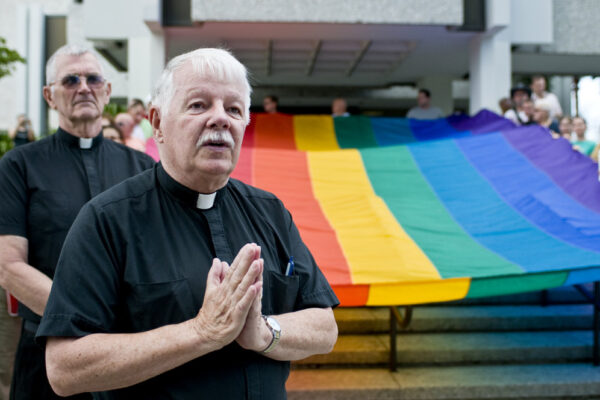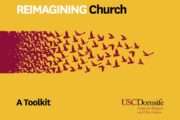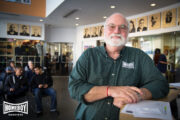With 62 percent of Ireland voting for the legalization of gay marriage, both liberal and conservative commentators have lamented/celebrated the death of the church in Ireland this week.
“The Irish Church’s failures have caused its people to choose secularism over faith,” bemoaned one headline from the UK Catholic Herald, referencing the church’s sordid sex abuse scandal.
“One wonders what it will take for Americans to become as embittered, and liberated, as the Irish,” Jay Michaelson said on The Daily Beast.
Such reactions have made liberal Catholics defensive. “Many who voted ‘yes’ on gay marriage did so because of their faith, not in spite of it,” argued Christopher Hale, executive director of Catholics United for the Common Good, on TIME.
All these perspectives have some truth to them, but are incomplete. With nearly 85 percent of Ireland still identifying as Catholic, the vote can’t be chalked up to secularization. Yet only 18 percent of the Irish go to mass regularly. The vote for gay marriage embodies that disconnect, pointing to many ways that Catholics can be “Catholic.”
It’s too early to write off traditional conceptions of Catholicism. At 38 percent, a significant minority still voted “no” to gay marriage. Conservatives blame dissent on ignorance of the truth and beauty of church teachings. Indeed, a Vatican official who called the vote a “defeat for humanity” said, “The Church must take account of this reality, but in the sense of reinforcing its commitment to evangelization.”
On the other extreme are those who are actively promoting change in the church. Catholic reform groups, which exist all around the world, offer these folks a spiritual home. LGBT Catholics also form their own communities, such as Gay Catholic Voice Ireland or DignityUSA.
“Catholics understand and live by the true values of our faith—love, family, inclusion, and honoring the dignity of all people,” DignityUSA Executive Director Marianne Duddy-Burke said after the vote.
This line of thinking resonates with many Catholics. It’s notable that a number of other “Catholic” countries – France, Spain, Brazil and Argentina, for instance – also allow gay marriage. In the U.S., 60 percent of Catholics support gay marriage, according to the Public Religion Research Institute, and a Supreme Court with six Catholic justices will soon decide whether gay marriage bans are constitutional.
Conservatives may be right that ordinary Catholics don’t fully understand the church’s teaching on sexuality, but nor do they care to learn. When feminist theologian Donna Freitas interviewed Catholic college students in the U.S. about what the church teaches about sex, they laughed in her face. The church says, “Don’t do it” and “Don’t be gay,” they said.
These young people ignore the rote rules of the scandal-ridden church. They may agree with the church reformers, but to them, the hierarchy is irrelevant. Spirituality and sexuality are divorced in their minds. “What the church teaches about sexuality is rejected almost as a duty,” Father Paul Morrissey wrote.
When Pope Paul VI re-affirmed the church’s opposition to artificial birth control in 1968, it became socially acceptable to part ways with the church on issue of sexuality. “Cafeteria Catholics,” a once dismissive name, pick and choose their beliefs with pride. Today, many Catholics taking communion on Sundays not only have used birth control but they also support gay marriage, and they do so without a twinge of guilt.
But this group also includes those who rarely darken the door of a church. They baptize their children and may even send them to Catholic school, but they’re “Christmas and Easter” Catholics, connecting to the church through family and tradition.
Catholic religious identity is cultural as much as it is about creed or Mass attendance. But the question remains whether those who have ditched the dogma will eventually ditch their identity as well.
The American experience shows that the tension can be difficult to sustain. Forty-one percent of Americans raised Catholic no longer identify with the faith, according to the Pew Research Center. Nearly a third of American Millennials who left their childhood religion said negative teachings about or treatment of LGBT people was a factor in them leaving, PRRI found.
Some predict the Irish will follow their American counterparts out the church door, but others hope the people of Ireland will lead the institutional church in the direction of change. While the former is more likely than the latter, in all likelihood, there will always be pockets of committed traditionalists and reform-minded liberals among the cafeteria, cultural and lapsed Catholics. If Ireland has taught us anything, it’s that being Catholic means much more the following the pope and his prelates.
Photo Credit: Danny Hammontree/Flickr
Megan Sweas is the editor and director of communications with the USC Center for Religion and Civic Culture.








